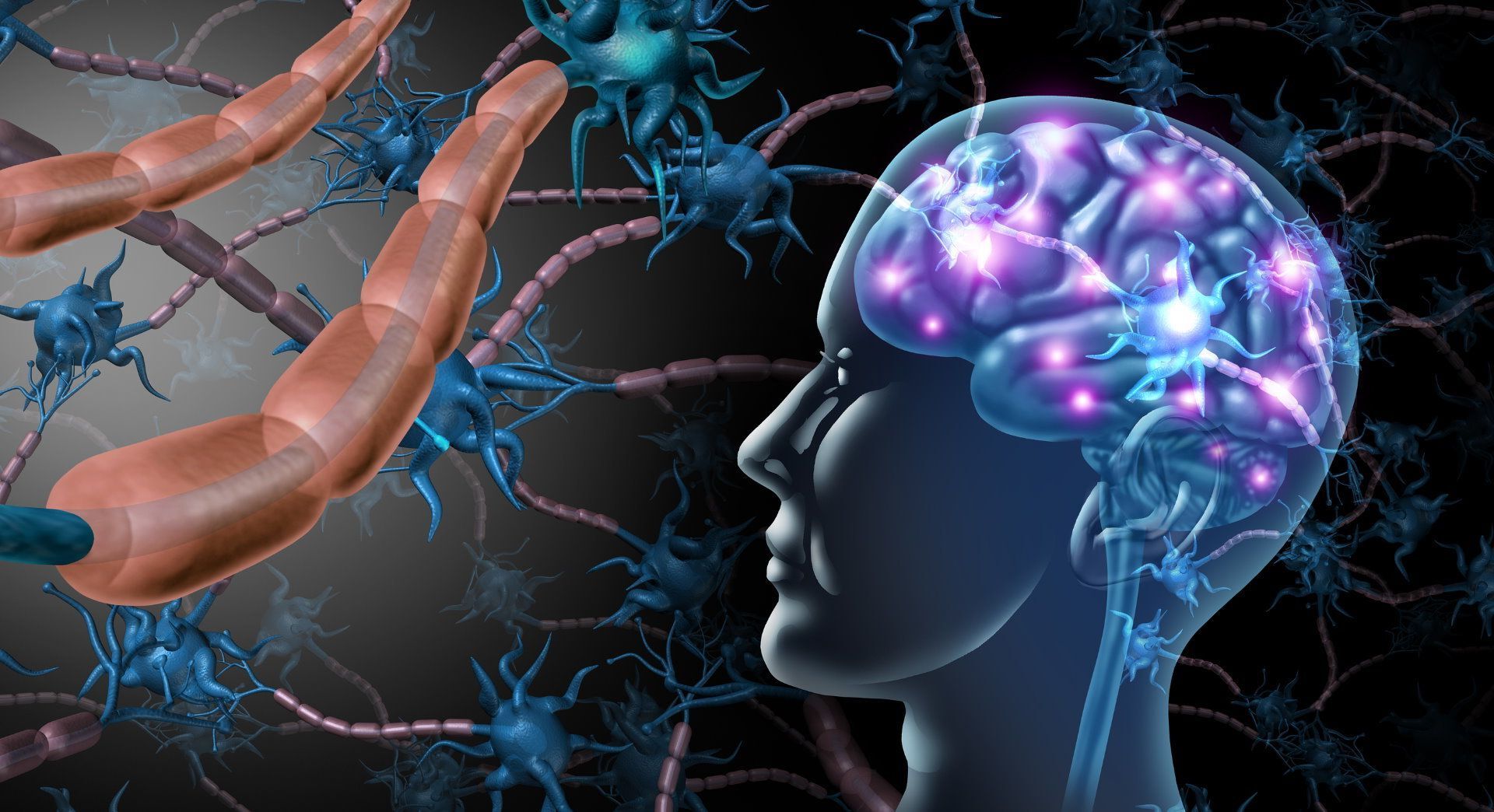
What is Korsakoff's Syndrome? Korsakoff's Syndrome is a chronic memory disorder caused by severe deficiency of thiamine (vitamin B1). Often linked to chronic alcohol misuse, it can also result from malnutrition or other conditions leading to thiamine deficiency. This syndrome typically follows an episode of Wernicke encephalopathy, a related acute condition. Symptoms include severe memory loss, confabulation (creating false memories), and personality changes. Patients may struggle to learn new information and recall recent events. Early diagnosis and treatment with thiamine supplements can prevent further damage, but recovery varies. Understanding Korsakoff's Syndrome is crucial for managing and supporting affected individuals.
Key Takeaways:
- Korsakoff's syndrome is a memory disorder linked to alcohol misuse and thiamine deficiency. It causes severe memory impairments, confabulation, and personality changes, but early detection and treatment can improve outcomes.
- Chronic alcohol use and thiamine deficiency can lead to Korsakoff's syndrome, affecting memory and cognitive function. Prevention, early diagnosis, and treatment are crucial for managing this condition.
What is Korsakoff's Syndrome?
Korsakoff's syndrome is a chronic memory disorder often linked to severe alcohol misuse and thiamine deficiency. This condition can have profound effects on memory and cognitive function. Let's dive into some key facts about this syndrome.
-
Definition and Causes: Korsakoff's syndrome is a preventable memory disorder that usually emerges after an episode of Wernicke's encephalopathy. Chronic alcohol misuse is a common cause, leading to thiamine deficiency.
-
Thiamine Deficiency: Thiamine, or vitamin B1, is crucial for brain function. Chronic alcohol consumption impairs the body's ability to absorb and use thiamine, resulting in its deficiency.
Symptoms and Diagnosis
Understanding the symptoms and how Korsakoff's syndrome is diagnosed can help in early detection and treatment.
-
Symptoms: The main symptoms include severe memory impairments, especially affecting episodic memory. Patients struggle to learn new information and recall recent events. Confabulation, or creating false memories, is also common.
-
Memory Loss: The disorder primarily affects current and recent memory. Patients may repeat questions or read the same page repeatedly without realizing it. Some may also lose or distort memories from up to 30 years earlier.
-
Confabulation: Confabulation is a hallmark symptom where patients invent stories or memories to fill gaps in their recollection, often believing these false memories to be true.
-
Hallucinations: Some patients may experience hallucinations, seeing or hearing things that aren't there. These hallucinations can be distressing and complicate diagnosis.
-
Personality Changes: The syndrome can lead to significant personality changes, such as apathy, increased talkativeness, or repetitive behaviors, affecting daily functioning.
-
Lack of Insight: Patients often lack insight into their condition. Despite significant memory gaps, they may believe their memory is functioning normally, making diagnosis challenging.
-
Diagnosis: Diagnosis involves a detailed clinical evaluation, patient history, and various tests, including routine laboratory screens and liver function tests. Testing for B1 and thiamine levels can aid in diagnosis.
-
Brain Imaging: Brain imaging may reveal changes indicative of Korsakoff's syndrome, such as lesions in the mammillary bodies, mammillo-thalamic tract, and anterior thalamus, crucial for memory function.
Prevalence and Demographics
Korsakoff's syndrome affects a small percentage of the population, but understanding who is at risk can help in prevention.
-
Prevalence: The exact prevalence is unknown, but it is estimated to occur in 1% to 2% of the general population in the United States. It is less common than Alzheimer’s disease, vascular dementia, frontotemporal dementia, or dementia with Lewy bodies.
-
Demographics: The disorder affects slightly more males than females and is evenly distributed between ages 30 and 70.
Risk Factors and Associated Conditions
Several factors can increase the risk of developing Korsakoff's syndrome, and it can be associated with various conditions.
-
Risk Factors: Chronic alcohol exposure is neurotoxic to the nervous system, causing brain damage. Additionally, chronic alcohol use lowers vitamin B1 levels, leading to severe thiamine deficiency. Poor nutrition and genetic predisposition can also raise the risk.
-
Associated Conditions: Korsakoff's syndrome can be linked to disorders other than alcohol misuse, including anorexia, stringent dieting, fasting, starvation, weight-loss surgery, uncontrolled vomiting, AIDS, kidney dialysis, chronic infection, or widespread cancer.
-
Untreated Wernicke’s Encephalopathy: Untreated Wernicke’s encephalopathy can progress to Korsakoff’s syndrome in 85% of survivors. This condition is a medical emergency and can cause death in up to 20% of cases if left untreated.
Treatment and Recovery
While Korsakoff's syndrome can be severe, treatment and recovery are possible with the right approach.
-
Recovery: About a quarter of people with Wernicke-Korsakoff syndrome make a good recovery with treatment. About half make a partial recovery and still need support to manage their lives. About a quarter make no recovery and may need long-term care in a specialist residential care home.
-
Treatment: The cornerstone of any rehabilitation program is abstinence from alcohol. Patients should also receive thiamine supplements to prevent further deficiency. A calm and well-structured environment can help patients learn new information, particularly if new information is cued.
-
Cognitive Rehabilitation: Cognitive rehabilitation involves strategies to improve memory and cognitive functions, such as using calendars, reminders, and structured routines to aid in daily tasks.
Neuropathology and Memory Dysfunction
The brain changes and memory issues in Korsakoff's syndrome are complex and multifaceted.
-
Genetic Predisposition: Some heavy drinkers may have a genetic predisposition to developing Korsakoff’s syndrome. However, the exact genetic mechanisms are not yet fully understood.
-
Neuropathology: The characteristic neuropathology includes neuronal loss, micro-haemorrhages, and gliosis in the paraventricular and peri-aqueductal grey matter. Lesions in the mammillary bodies, mammillo-thalamic tract, and anterior thalamus are more important to memory dysfunction than lesions in the medial dorsal nucleus of the thalamus.
-
Memory Dysfunction: Episodic memory is severely affected, while the learning of new semantic memories is variably affected. ‘Implicit’ aspects of memory are preserved, meaning patients can still perform tasks without conscious awareness of the actions.
Clinical Manifestations and Prognosis
The clinical manifestations and prognosis of Korsakoff's syndrome can vary widely among patients.
-
Clinical Manifestations: Symptoms can vary widely. Some patients may be initially comatose or semi-comatose, while others may present with clear consciousness but significant memory impairments.
-
Prognosis: Patients have a normal life expectancy if they remain abstinent from alcohol. However, the quality of life can be significantly impacted by cognitive and memory impairments.
Long-term Care and Psychological Aspects
Due to the chronic nature of Korsakoff's syndrome, long-term care and understanding the psychological aspects are crucial.
-
Long-term Care: Appropriate long-term care facilities are needed. Empirical research has shown that good practice has beneficial effects on patient outcomes, but such facilities are often lacking.
-
Psychological Aspects: The psychological aspects are complex and multifaceted. Patients may experience significant emotional distress due to their condition, complicating treatment and rehabilitation.
Social Impact and Preventive Measures
The social impact of Korsakoff's syndrome can be substantial, and preventive measures are essential.
-
Social Impact: Patients may require significant support from family and caregivers to manage daily tasks, which can strain relationships and affect overall well-being.
-
Preventive Measures: Ensuring adequate thiamine intake, particularly in individuals with a history of chronic alcohol misuse or malnutrition, is crucial. Regular monitoring of thiamine levels and early intervention in cases of suspected deficiency are essential.
Screening and Research Gaps
Screening for memory loss and addressing research gaps can help improve outcomes for patients with Korsakoff's syndrome.
-
Screening for Memory Loss: Anyone admitted to the hospital for an alcohol-related condition should be professionally screened for memory loss and cognitive change. The screening should include supplementary questions to assess recent memory, and if screening suggests impairment, the person should receive a more detailed cognitive workup.
-
Research Gaps: Despite substantial knowledge about Korsakoff’s syndrome, scientific questions regarding the underlying genetics and optimal treatment strategies remain. Further research is needed to fully understand the mechanisms of this disorder and to develop more effective interventions.
Public Awareness
Raising public awareness about Korsakoff's syndrome is essential for early detection and prevention.
- Public Awareness: Educating healthcare providers and the general public about the risks associated with chronic alcohol misuse and thiamine deficiency can help reduce the incidence of this debilitating condition.
Key Takeaways on Korsakoff's Syndrome
Korsakoff's syndrome is a serious, yet preventable, memory disorder linked to chronic alcohol misuse and thiamine deficiency. It often follows Wernicke's encephalopathy and presents with severe memory impairments, confabulation, and sometimes hallucinations. Diagnosis involves clinical evaluations, patient history, and brain imaging. Treatment focuses on abstinence from alcohol, thiamine supplements, and cognitive rehabilitation. While some patients recover partially, others may need long-term care. Awareness and early intervention are crucial. Ensuring adequate thiamine intake and monitoring those at risk can reduce the incidence. Korsakoff's syndrome affects both the individual and their social circle, highlighting the importance of support systems. Understanding this condition helps in providing better care and improving the quality of life for those affected.
Frequently Asked Questions
Was this page helpful?
Our commitment to delivering trustworthy and engaging content is at the heart of what we do. Each fact on our site is contributed by real users like you, bringing a wealth of diverse insights and information. To ensure the highest standards of accuracy and reliability, our dedicated editors meticulously review each submission. This process guarantees that the facts we share are not only fascinating but also credible. Trust in our commitment to quality and authenticity as you explore and learn with us.


